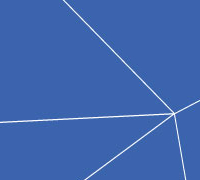On 28 June, COST organised its first workshop on science diplomacy with the purpose of gathering COST Actions to discuss and exchange experiences around this topic.
Science diplomacy has been identified as a key tool to solve global challenges through collaboration between policy, diplomacy, and international relations. In this context, the expertise gained by COST throughout its 50 years of connecting interdisciplinary research networks has a lot to offer and can strongly contribute to this topic growing in importance. The distinctive features of COST Actions, for them to be open (new partners can join any time during the lifetime of the Action) and inclusive (partners from all relevant fields and backgrounds), translate the potential that these collaborative open spaces do have to increasingly feed discussions and add to existing practise on Science Diplomacy with concrete experiences and knowledge.
COST has been focusing on specific activities promoting science diplomacy for a year now and is committed to keep exploring how to further contribute to this topic. This first dedicated workshop brings a new steppingstone to this mission and taps into the specific experience of several COST Actions with research activities that fit this purpose.
COST Actions to help moving from concept to materialisation
The workshop was kicked-off by COST Director Ronald de Bruin who underlined that science diplomacy was a promising concept, and stated in his introduction: “I am convinced that networks like the COST Actions have a lot to contribute and shape Science Diplomacy’s real-life materialisation. I am proud that COST has been already acknowledged in this context by the Strategic Forum on International Cooperation and has built a good working relation with the European projects directly addressing science diplomacy.”
Throughout his presentation, Mr Jan-Marco Müller, science and technology advisor at the European External Action Service, tackled different questions related to Science Diplomacy such as the necessity to have this concept and the importance of science evidence to foreign policy. He also covered the geopolitical dimension of science and how it serves different interests, mentioning the ongoing process of science stepping increasingly into the diplomatic sphere.
Following what, a discussion with Action Chairs present was initiated, specifically organised around three questions:
- What is your understanding of science diplomacy in the context of your Action?
- Can you realise it in your Action’s activities?
- What, in your view, are the challenges for your Action to be a fully-fledged instrument for science diplomacy?
Additionally, participants also reflected on these topics: “How to define the “best science”?” or “How to train scientists to efficiently collaborate with diplomats?”.
The very rich and thought-provoking discussion looked at science diplomacy as a tool for foreign policy. Indeed, Science Diplomacy can have a key role in public diplomacy, supporting the process of citizens’ involvement into state’s matters. Participants highlighted that science diplomacy can help go further and can enable engagement to go beyond the state. They also agreed that science is a resilient channel that can and is to be used across countries to contribute to address and to soften political challenges.
Discussing the COST networking tools, there was an agreement that they do serve well the establishment and help maintaining personal connections.
The importance of social interactions
Social interactions are essential to engage with people from different backgrounds. Even in some specific situation (eg: conflict areas) where no networking tools can be used, the existence of the network and the collaboration between researchers are essential factors to keep raising awareness and to move towards solutions.
Science diplomacy builds on inclusive multilateralism involving citizens and civil society where diplomats are recognising that there is a point where classic diplomacy ends but science (and other civil cooperation) can go further.
In this respect the role of culture in science diplomacy was mentioned as a feature with value to connect. Science and research provide the voice of reason, while art and culture bring emotions that help in convincing.
Further reading:
